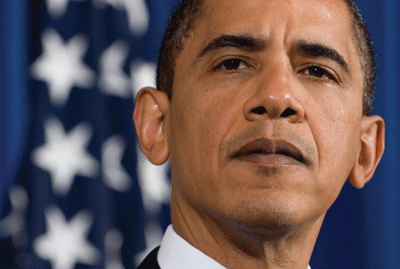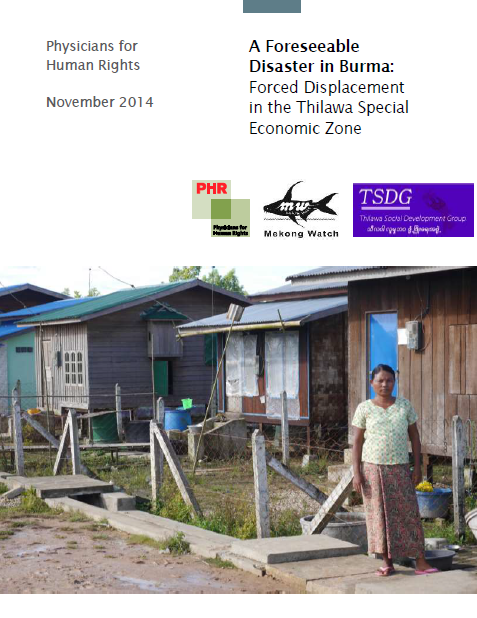Posts Tagged ‘Burma Government’ (94 found)
Britain Must Support International Investigation into Rape and Sexual Violence in Burma
On the International Day for the Elimination of Violence against Women, more than 2,000 campaign postcards are being delivered to the British Foreign Office calling on Foreign Secretary Philip Hammond to support the establishment of an international investigation into rape and sexual violence committed by the Burmese Army. The postcards were signed by supporters of Burma Campaign UK. […]
• • •BROUK Welcomes US Senate Resolution on Rohingya
Burmese Rohingya Organisation UK today welcomed the introduction of a Resolution in the US Senate condemning all forms of persecution and discrimination against the Muslim Rohingya ethnic group from Burma. BROUK would like to express many thanks to US Senator Menedez and Senator Mark Kirk for introducing this resolution. […]
• • •Statement on Consultation Organized by Border-based Civil Society Organisations with the Nationwide Ceasefire Coordination Team (NCCT)
On November 22-23, 2014, 42 representatives of 25 border-based civil society organisations (CSOs), working on education, health, media, migrant workers’ rights, refugees, the environment, women’s issues and human rights, held a consultation meeting with the NCCT. This was the first such meeting with the NCCT held formally by a broad grouping of border-based CSOs. […]
• • •‘If they had hope, they would speak’: The Ongoing Use of State-Sponsored Sexual Violence in Burma’s Ethnic Communities
In January 2014, the Women’s League of Burma (WLB) published a report which demonstrated the systematic use of rape by the Burma Army as a strategy to subjugate communities across the country. We documented over a hundred cases of sexual violence in the years since President Thein Sein took office – a number which we believe grossly underestimates the true scale of the problem. Drawing on evidence gathered by our member organisations across Burma, we argued that there are clear links between militarisation, investment and human rights abuses. We also proposed a number of steps to uproot the culture of impunity which surrounds sexual violence, and prevents survivors from obtaining justice. Whilst recent months have seen positive action taken in several areas, the pillars which provide impunity for perpetrators of human rights abuses remain in place. In January, we called for constitutional reform to place the military under civilian control; the establishment of effective judicial and non-judicial mechanisms to investigate human rights abuses, particularly those relating to sexual violence, and; greater participation of women in the peace process dialogue. […]
• • •‘If they had hope, they would speak’: The Ongoing Use of State Sponsored Sexual Violence in Burma’s Ethnic Communities
(Yangon, November 24, 2014) – Burma Army soldiers continue to engage in acts of sexual violence on a widespread scale, and women and human rights defenders in ethnic communities face harassment and persecution, the Women’s League of Burma (WLB) said in a new report published today to coincide with International Day for the Elimination of Violence against Women. […]
• • •British Government Still In Denial About Reality Of Burma Reforms
Following a debate on human rights in Burma in the British Parliament yesterday evening, Burma Campaign UK today accused the British government of being in denial about the reality of the reform process in Burma. Burma Campaign UK called on the British government to formally accept that the reform process in Burma has stalled, that the process is not a transition to democracy, and to change policy accordingly. […]
• • •International Community Silent on New Rohingya Crackdown
International Community Silent on New Rohingya Crackdown Burmese Rohingya Organisation UK today called on the international community to end its silence over a new wave of repression against the Rohingya which began in September. […]
• • •Are You Listening, President Obama?
 US President Barack Obama’s made his much-anticipated second trip to Burma last week during the 25th ASEAN Summit, amid growing awareness that the reforms which he so eagerly celebrated during his 2012 trip are quickly unravelling – or being exposed for the stage-managed charade that they are.
US President Barack Obama’s made his much-anticipated second trip to Burma last week during the 25th ASEAN Summit, amid growing awareness that the reforms which he so eagerly celebrated during his 2012 trip are quickly unravelling – or being exposed for the stage-managed charade that they are.
In 2012, it was all too easy to trust the reform process. National elections had been scheduled for 2015, Daw Aung San Suu Kyi had been freed from house arrest and elected to Parliament, political prisoners had been released, a nationwide ceasefire process was underway with the majority of armed ethnic groups, and restrictions on media and civil society had been drastically loosened. And so the US and the international community embraced the reforms.
Yet, last month, in her recent address to the UN General Assembly, Special Rapporteur on the situation of human rights in Burma Yanghee Lee warned of the risks of backtracking. Then, earlier this month, Daw Aung San Suu Kyi labelled the process as “stalled” and remarked that “there have been times when the [US] government has seemed over-optimistic about the reform process.”
Furthermore, there has been a flurry of recent calls from civil society across Burma, directly raising their various concerns about the reform process with President Obama. The Karen Human Rights Group wrote an open letter drawing President Obama’s attention to human rights violations resulting from the ongoing government military presence throughout south-eastern Burma; […]
• • •Myanmar: A Tipping Point for Rohingya Rights?
 Two years after a wave of violence hit the region, Myanmar’s Rakhine State has become a segregated zone. Two million ethnic Rakhine live apart from 1.2 million stateless Rohingya, who are trapped inside displacement camps or barred from leaving their villages. Ending this segregation and protecting the rights of the Rohingya are necessary components of Myanmar’s move toward democracy. However, the Rakhine leadership has rejected – both politically and with force – any reintegration of the two communities, and it is seeking to exclude the Rohingya from any role in the state’s development, distribution of resources, and political representation. […]
Two years after a wave of violence hit the region, Myanmar’s Rakhine State has become a segregated zone. Two million ethnic Rakhine live apart from 1.2 million stateless Rohingya, who are trapped inside displacement camps or barred from leaving their villages. Ending this segregation and protecting the rights of the Rohingya are necessary components of Myanmar’s move toward democracy. However, the Rakhine leadership has rejected – both politically and with force – any reintegration of the two communities, and it is seeking to exclude the Rohingya from any role in the state’s development, distribution of resources, and political representation. […]
A Foreseeable Disaster in Burma: Forced Displacement in the Thilawa Special Economic Zone
Recent liberalization of some governmental policies in Burma (officially the Union of Myanmar) has led to the lifting of a number of bilateral sanctions and increases in foreign aid and investment. Both governments and corporations are entering into partnerships with Burmese companies to undertake major development projects, including building special economic zones (SEZ), developing hydroelectric dams, signing concession agreements for mining operations, and building pipelines. Despite their potential to create opportunities for economic advancement, such development projects are causing widespread forced displacement throughout the country, undermining the human rights of the people living in affected areas.
Forced displacement threatens people on every continent. Environmental degradation, conflict, the race for scarce resources, development projects, and land grabs have caused a significant number of these illegal displacements. People living in marginalized communities, including ethnic minorities and indigenous groups, are particularly vulnerable to forced displacement. […]
• • •










 All posts
All posts